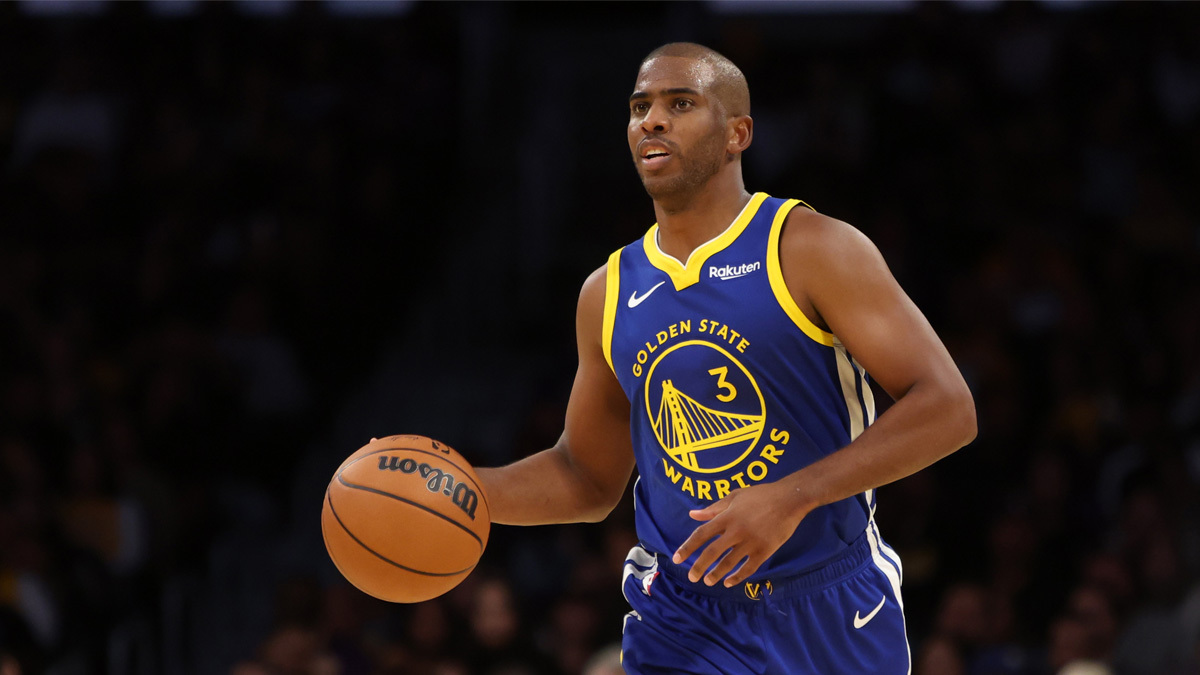Five years ago Tuesday, the Warriors achieved arguably the most impressive feat of their dynasty.
It hasn't been remembered that way, but it's time to start.
Golden State clinched a 73-9 season that day with a 125-104 win over the Memphis Grizzlies. The Warriors became the first -- and, still, the only -- team in NBA history to win 73 games in an 82-game regular season. A Steve Kerr-coached squad bested one win from his playing days, the 1995-96 Chicago Bulls, as the greatest regular-season team in NBA history.
Stay in the game with the latest updates on your beloved Bay Area and California sports teams! Sign up here for our All Access Daily newsletter.
Five years later, Kerr's Warriors aren't remembered as fondly as those Bulls, in large part because of what transpired over the next three months.
Sixty-eight days after beating the Grizzlies, the Warriors lost Game 7 of the 2016 NBA Finals to the Cleveland Cavaliers, ensuring "3-1" wasn't far behind any mentions of "73-9."
Eighty-three days after winning more regular-season games than any other team in NBA history, Kevin Durant announced his intention to sign with the Warriors. Not long after, "73-9" became a cudgel to decry Durant's decision, something neither he nor his former team can shake to this day.
The blown Finals lead can't be separated from the regular-season record, of course. Durant's three-season tenure with the Warriors can't, either. Neither are strong enough take the shine off Golden State breaking one of the NBA's unbreakable records within two decades of it being set.
Golden State Warriors
The 2015-16 Warriors were a buzzsaw. They outscored teams by 10.8 points per game on the season, and their plus-11.6 net rating was the fourth-most in NBA history at the conclusion of the '15-16 season. Golden State started 24-1 with Kerr sidelined due to his back, and went 39-4 with then-assistant coach Luke Walton filling in.
Those Warriors didn't lose consecutive games in a row during the regular season. Golden State had a 24-game winning streak, an 11-game streak, three seven-game streaks, a six-gamer and a five-gamer.
The Warriors only lost once to the San Antonio Spurs, winners of 67 games that season and owners of a better net rating (plus-11.8). Golden State didn't lose to Durant's Oklahoma City Thunder (3-0), nor did they drop games against the "Lob City" Los Angeles Clippers (4-0), the LeBron James- and Kyrie Irving-led Cavaliers (2-0) and Eastern Conference finalist Toronto Raptors (2-0).
Lost in the five years since the Warriors' milestone is an appreciation for just how difficult it was. They were reigning champions, whose target on their back only grew larger as they entered the same conversation as the greatest team in NBA history. Winning 73 games required some lucky breaks, sure, but it also required an exhausting level of focus to maintain peak performance.
Sure, the regular-season game-planning isn't as intense or focused as it is in the postseason. The pace is too relenting for that, but it's not like the Warriors' opponents took it easy on them in the regular season.
No wonder Golden State faltered a bit in the playoffs.
Critics, and Michael Jordan stans, will remind you that the 1995-96 Bulls Finished The Job by lifting the Larry O'Brien Trophy. Those Warriors also lost more playoff games (10) than those Bulls (three).
Yet Golden State's path to 16 wins was arduous in a way that Chicago's wasn't. The Warriors faced a former NBA MVP (Durant) and future MVP (Russell Westbrook) in the Western Conference finals, and a four-time NBA MVP in the Finals (LeBron James). Shaquille O'Neal, then 24 years old and in his final season with the Orlando Magic, was the only former, reigning or future MVP the Bulls played in the postseason in 1995-96.
It's sacrilegious to say the NBA is better now than it was in Jordan's era, but I'll quote Kerr -- who, you know, played in Jordan's era -- when he was asked in 2017 about players from previous eras saying their teams would beat the Warriors.
"They're all right," Kerr said. "They would all kill us. The game gets worse as time goes on. Players are less talented than they used to be. The guys in the '50s would've destroyed everybody. It's weird how human evolution goes reverse in sports. Players get weaker, smaller, less skilled. I don't know. I can't explain it."
Playoff success is the end-all, be-all in North American sports, and for good reason in the NBA. Usually, thanks in no small part because teams are able to zero in on a single opponent for four-to-seven games rather than game-planning for a few at a time like in the regular season, the best team wins the title every year.
It's also a much smaller sample size and, thus, prone to a degree of variance you wouldn't necessarily see over an 82-game season. The Warriors' record-setting season isn't less impressive because they blew a three-games-to-one lead in the NBA Finals. If anything, it drives home just how difficult going 73-9 was in the first place.
RELATED: Steph 'not slowing down' as historic legend keeps growing
The Warriors didn't finish the job after winning 73 regular-season games, but that doesn't take away from the fact they won 73 regular-season games. If that fact is enough to charge Durant and Golden State with ruining the NBA the following season, why isn't it enough to ensure the achievement stands on its own without an asterisk?
Going 73-9 should be remembered for what it was -- breaking one of the NBA's seemingly untouchable records, set by one of the league's greatest teams -- rather than what it could've been, if not for a Game 7 loss.
Perhaps it will one day, especially as the Warriors' record fades further into NBA history while withstanding challenges from future championship contenders.


